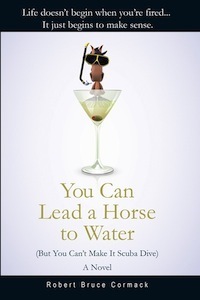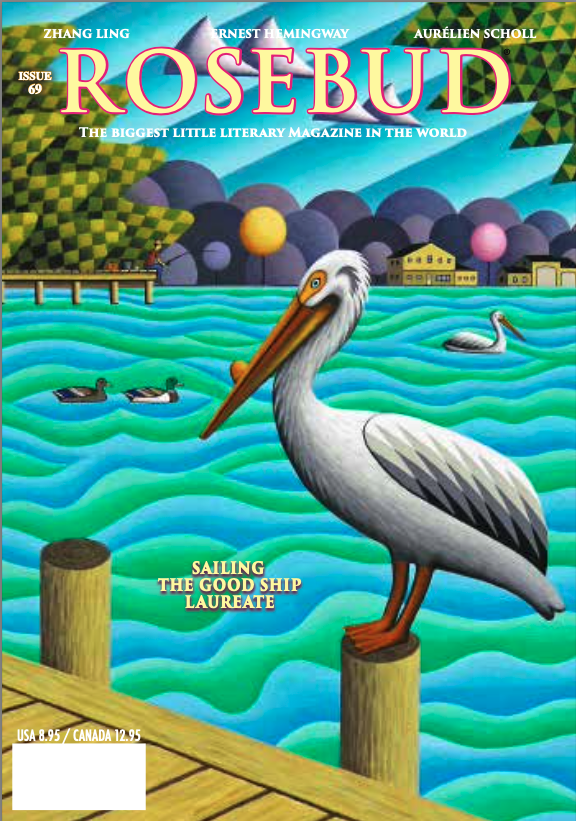Why Typos and Spelling Mistakes Bug People

John F. Kennedy was a notoriously bad speller. His wife, Jackie, was a very good speller and frequently pointed out his mistakes, something First Ladies are supposed to do when their husbands show signs of illiteracy.
John’s poor spellinng was a constant source of embarrassment for Jackie. She was a stickler, he wasn’t. They argued a lot about spelling and typos which, apparently, drove Kennedy into the arms of other notoriously bad spellers like Marilyn Monroe.
It’s interesting that all of Monroe’s lovers were bad spellers (except Arthur Miller, who was pretty good, but as Monroe’s maid revealed, Miller spent more time writing than giving Marilyn the business, whereas, Kennedy spent more time giving Marilyn the business than writing).
Martha Gellhorn, third wife of Ernest Hemingway, wasn’t crazy about Ernie’s spelling and typos, either. She called him “Bug” which might suggest his spelling ‘bugged’ her.
Hemingway wasn’t as bad as Kennedy, but he was still pretty sloppy. Editors frequently chastised him for his typos and spelling mistakes. He responded by telling them that’s what they were paid to do.
The only worse speller than Hemingway was F. Scott Fitzgerald who got Hemingway’s name wrong for years (Earnest Hemmingway). He also had trouble with “criticize” and “definite,” something you wouldn’t expect from the author of "The Great Gatsby” and may have been responsible for his and Zelda’s alcoholism.
William Faulkner accused Hemingway of not knowing any big words. Faulkner may have known lots of big words, but he couldn’t spell them. He was even known to spell Yoknapatawpha County wrong (and he was from there, for crying out loud!).
So what is it about typos and spelling mistakes that bugs some people so much? One writer, Penelope Trunk, whose career advice columns appear in 200 newspapers, thinks typo/spelling critics are perfectionists who spend more time mired in details than good ideas.
“They can’t look up and notice the nuances of what matters to other people,” she writes, claiming that typo freaks have a social disorder.
She points out that people who bitch about spelling errors frequently comment about how the writer is a moron. I don’t know how many actually come out and say that. Most approach it like one reader who decided to reproach a blogger for his writing: “Your points are valid but I do wish you had engaged a proof reader before publishing, if for no other reason than to protect your own credibility.”
Interesting how some people equate spelling with credibility, yet post nothing themselves other than criticism. If the above reader felt the blogger made valid points, what were they?
That may be the most telling thing about spelling and typo freaks. Given a choice, they prefer finding fault over finding something good to say. Their lives seem to make more sense catching the mistakes of others than having ideas of their own.
Which raises the question: Are they constructive or bitchy?
Having spent my career writing, I’ve been at both ends of the equation. I frequently miss typos in my work, yet often find them in others' writing. A friend pointed out that I’m engaged in creating, and shouldn’t have to worry about typos and grammar (my publisher thinks the opposite, stating in no uncertain terms that if I can’t proofread my work, I’d better damn well hire someone who can!).
I found two typos in his last email.
A friend of mine came over to the house with a copy of my book. She said: “By the way, I found five typos.” Finding typos in a set novel isn’t the sort of news a writer wants to hear, but she gave me a good explanation. “I’m very meticulous,” she said. “It’s kind of a habit.”
Stated like that, I realized there’s a difference between critical and constructive. In a meticulous person’s mind, they’re just trying to help. They see something with typos or spelling mistakes as an unfinished piece of work. It needs to be completed. As she explained: “You’re good at writing stories, I’m good at proofing.”
One doesn’t diminish the talent of the other. It supports it.
I quickly enlisted her to edit my next book, figuring why do something I’m not good at when there’s someone who is? Besides, I’m known for supporting other people’s habits (usually drinking but proofing’s okay, too).
Penelope Trunk goes on to say in her article that we’re all a little gimpy where words are concerned. Over the years, millions of words enter our brains. We get to the point where all we see is the first and last letter. Our brain fills in the rest. Sometimes it gets the word wrong. I wouldn’t call it moronic. How many people call Spellchecker moronic (besides me)?
We make mistakes because that’s the sort of world we live in today. Blogs aren’t passed by copy editors; there’s no such thing as a copy chief anymore. Proofreaders spend more time looking for legal mistakes than grammatical ones.
Whether perfectionists like it or not, we’re going to have more typos and spelling errors. How we deal with them is up to us. I wouldn’t say anyone’s credibility is compromised by how well they spell. At the same time, we do run the risk of appearing sloppy if our blogs are filled with mistakes.
Proofreaders are a good idea, but if you’re blogging on a regular basis, that’s not always financially feasible. Besides, saying you should “engage a proofreader” sounds like you should engage a lawyer. We’re writing blogs, not committing sedition (although I think typo and spelling freaks feel they’re equally as bad).
Again, these people need to ask themselves, are they being critical or constructive? If it’s the first, then you could have a social disorder. It may feel like you’re establishing your own credibility, but, like the blogger said to the reader above: “[However], if mine or anyone’s credibility stands or falls based on a typo or two, and not the overall impact of their post, we’re all in a lot of trouble.”
Personally, I don’t think being meticulous is the problem. For me, it’s more the tone, the feeling that we’re being scolded. We all had enough scolding in school and, obviously, it didn’t improve our spelling or our grammar one bit.
When someone sends a snarly comment, of course we stiffen up. Of course we tell them they’re missing the big picture. What we should remember is that grammar and spelling is the big picture to them. There couldn’t be a bigger picture. If they’re snarly, it’s because they’re frustrated and just plain fed up with our sloppiness.
I particularly like the answer one woman gave to a question on a dating site:
“Your a bitch!” What bothers you more about this sentence?
A: The grammar. If you’re going to fling misogyny around, at least get the grammar right.”
I sent this to my first editor who’s also an English teacher. She responded by saying: “She’s okay with misogyny as long as the grammar is right?”
So, is Penelope Trunk right about details overshadowing ideas? Are perfectionists missing the big picture and letting misogynists get away with murder?
Maybe it’s time to step back a bit, take a deep breath, and agree to meet in the middle. We’ll spend more time proofing our work, and you’ll lighten up a bit.
Look, for all you know, we’re dyslexic. Lots of dyslexic people are highly intelligent, including Richard Branson, John Irving and Angelina Jolie. Not all dyslexics are highly intelligent, but we can read words backwards.
Surely that has to count for something.
What do you think? Do typos and spelling mistakes bother you? Are you critical or constructive? Let me know at: rcormack@rogers.com
Robert Cormack is a freelance writer, copywriter and blogger. His first novel: “You Can Lead a Horse to Water (But You Can’t Make It Scuba Dive)” is available online and at most bookstores. Check availability. There are actually some good deals online.

Articles from Robert Cormack
View blog
The Clint Eastwood School of Writing. · “Hard writing makes easy reading. Easy writing makes hard re ...

This is the latest issue of Rosebud Magazine (#69), marking my twenty-year relationship with publish ...

Why I screamed and upset the dog. · “We’ll never get rid of crazy people.” Michael Moore · I wish I ...
Related professionals
You may be interested in these jobs
-

Associé / Associée de Magasin Temps Plein Winners - Laval Est
Found in: beBee S2 CA - 4 weeks ago
Winners Laval, Canada Full timeSolita a découvert l'AVENTURE au travail chez TJX · Solita trouve que chaque jour est une nouvelle aventure dans nos magasins et, selon elle, c'est ce qui rend son travail si intéressant. Les défis, la résolution de problèmes et la variété constante ne sont qu'une partie de tout ...
-
Animateur de cours sur vélo stationnaire
Found in: Talent CA C2 - 3 days ago
Nautilus Plus Levis, CanadaEn tant qu'animateur de cours sur vélo stationnaire, vous préparez et animez les cours selon le descriptif indiqué et le niveau des participants. Votre rôle est de motiver les clients et de créer une ambiance dynamique lors de la séance afin de fidéliser votre clientèle. · Exigen ...
-
factory maintenance worker
Found in: Talent CA 2 C2 - 1 day ago
AAHAR FOODS INC. Mississauga, CanadaEducation: Secondary (high) school graduation certificate · Experience: Will train · Tasks · Sweep, mop, scrub and wax hallways, floors and stairs · Empty trash cans and other waste containers · Wash windows, interior walls and ceilings · Make adjustments and minor repairs to hea ...



Comments
Robert Cormack
6 years ago #18
Thanks, @Charlene Norman. Glad you enjoyed.
Robert Cormack
6 years ago #17
Debesh Choudhury
6 years ago #16
Sarah Elkins
7 years ago #15
I will definitely vouch for the quality, competence and reasonable prices of Charles David Upchurch if you want a proofreader! I am a stickler, not as a troll, but as someone who has clarity as a goal in writing. A typo here or there won't bother me too much, but consistently poor grammar and spelling are distracting. They also indicate someone who doesn't pay attention to detail, which in some lines of work would be a big red flag. I love your style, Robert, keep 'em coming.
Robert Cormack
7 years ago #14
Thanks, Charles, I'll keep you in mind.
Susan 🐝 Rooks, The Grammar Goddess
7 years ago #13
Robert Cormack
7 years ago #12
I worry more about grammar with children's books. I don't want kids picking up bad habits unless I'm speaking in a vernacular of, say, a pirate.
Robert Cormack
7 years ago #11
Careful, Rene, I could fill your basement (2 manuscripts, collection of short stores, 3 children's books).
Robert Cormack
7 years ago #10
Well that's good 'cause I ain't always grammatical.
Robert Cormack
7 years ago #9
Who would have thought grammarians would end up in glass houses.
Robert Cormack
7 years ago #8
Now, if I can just learn to misspell words backwards...
Robert Cormack
7 years ago #7
Thanks, Fatima.
Robert Cormack
7 years ago #6
Terrific! Thanks again.
🐝 Fatima G. Williams
7 years ago #5
Robert Cormack
7 years ago #4
Yes it is, Paul. Thanks.
Kevin Pashuk
7 years ago #3
Kevin Pashuk
7 years ago #2
Robert Cormack
7 years ago #1